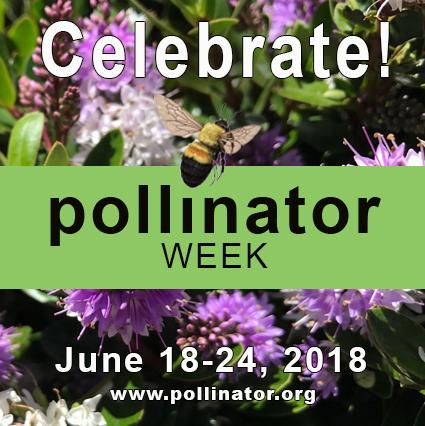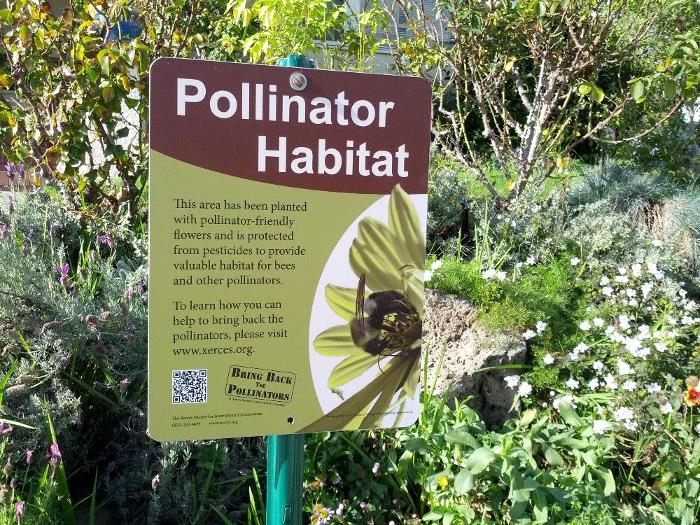Monday, Jun 18, 2018
By Lauren Cvengros, MNA Intern

The phrase “Save The Bees” is being thrown around a lot these days, but what does it really mean? It’s a phrase meant to inspire people to protect these little creatures that help pollinate our plants; but it goes beyond just bees, all pollinating critters are in dire need of protection.
Eleven years ago, the Senate approved Pollinator Week to be held June 18-24 to raise awareness for the declining pollinator presence in our ecosystem. Pollinator Week is an international movement to celebrate the ecosystem services that bees, bats, butterflies, birds and beetles provide to us. These pollinators are responsible for producing one-third of the food we eat by helping plants reproduce. Do you like to enjoy a yummy chocolate bar, crave avocado toast for breakfast or carve pumpkins on Halloween? Those are all made possible by our pollinating friends. Pollinators don’t just provide use with honey – if we didn’t have them we wouldn’t be able to eat fruits or vegetables, drink coffee, or add spices to our food. Even dairy would be limited as the food cows eat is available due to pollinators.
Plants are asexual, meaning they need a little help to reproduce. The pollinators carry the pollen from the male plants to the female plants so the females can produce seeds, fruit and the next generation of plants. Wondering what exactly these pollinated plants bring us?
They’re responsible for:
- provide the fruits and nuts we eat,
- give us half of the world’s oils, fibers and raw materials,
- prevent soil erosion,
- increase carbon sequestration (stores carbon that would otherwise be emitted into the atmosphere causing global warming),
- support other wildlife;
- protect against severe weather and promote clean air.
How you can help?
There are things you can do at home to participate in Pollinator Week.
- Make room for pollinators at your home. You can give them a place to live by planting gardens. Live in a city? Not a problem, pollinators love plants in any setting. Make sure you are planting the correct plants. You can find a guide to which plants are best for pollinators by visiting http://pollinator.org/pollinators#fn.
- Buying local is another way to support our pollinators – opt for buying in season, organic honey, fruits, spices and vegetables from a trusted source such as a farmer’s market.
- Spread the word! Let others know about Pollinator Week to raise awareness and help protect our pollinating friends.

If you would like to know more about Pollinator Week and ways to help, visit these links to get involved:
